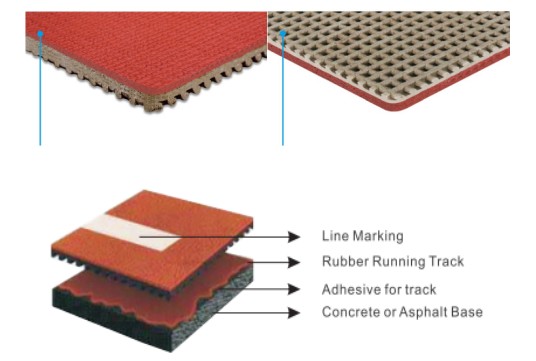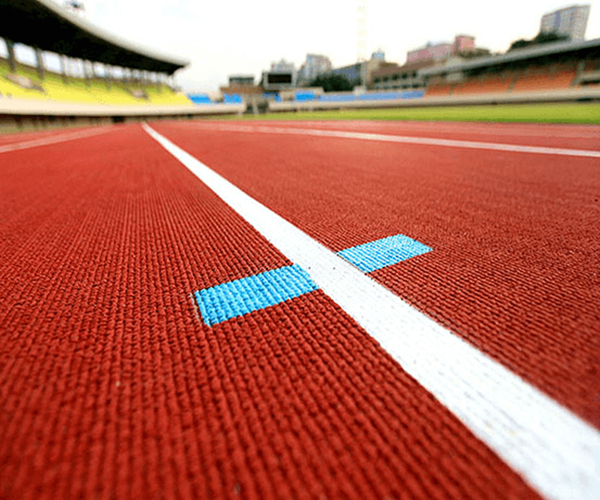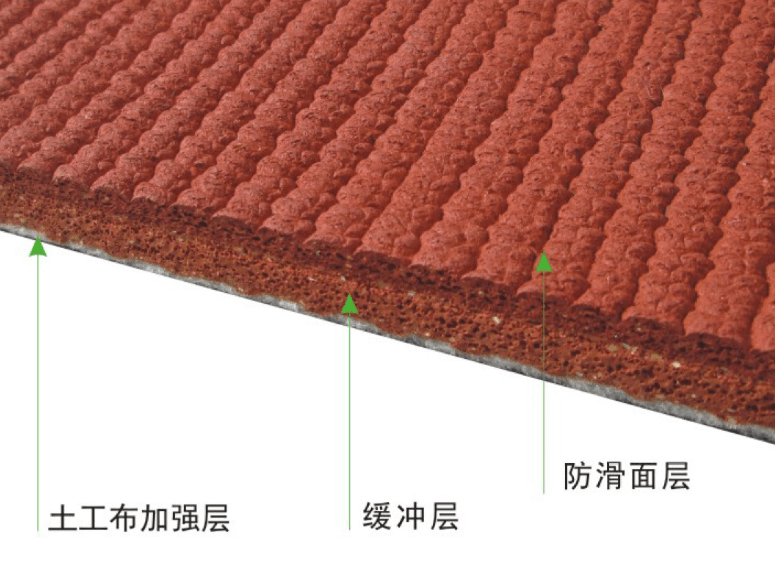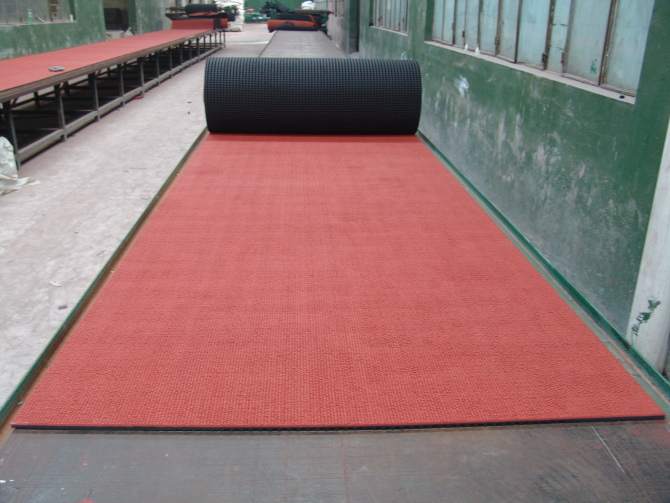
Prefabricated track systems are designed for all levels of training and competition at high intensity use facilities and they are the preferred track surface for wheelchair athletes and is extensively used at Major Track & Field Championships (a prefabricated track surface was used at the London 2012 Olympic and Paralympic Games). Whilst they are more expensive to install than other track systems they tend to be much harder wearing and require less maintenance and remedial repairs.
Unlike porous, solid and sandwich systems which are all laid "in-situ", prefabricated surfaces are sections of rubber matting manufactured in a controlled factory environment which helps to ensure even thickness and controlled performance characteristics. There are two main types of construction: solid sheets and sheets with a voided backing that improves shock absorption.
The mat is adhered to a base macadam to provide a non-porous system. Like solid and sandwich systems this type of surface is also impermeable to water and relies on crossfall to slot drains to keep the running surface free of surface water. This method of track construction produces excellent finish levels to exacting standards and is recognised as a elite level surface suitable for international athletics events.
Prefabricated tracks tend to be more long lasting and have lower maintenance costs than polymeric surfaces and retain their performance characteristics throughout the life of the material. There are also environmental benefits in that prefabricated systems can be removed and recycled.
IAAF Test Results |
Test item
Tensile stength | Mpa | Reference IAAF | Standard
≥0.5 | Test data
0.73 | Judge
≥0.7Mpa |
Elongation at break | % | IAAF | ≥40 | 134.0 | ≥200% |
Force Retardance | % | IAAF | 35-50 | 40.4 | ≥49BPN20"C |
Vertical deformation | 1m | IAAF | 0.6-2.5 | 1.61 | 1.2min |
Skid resistance | BPN20'C | IAAF | ≥47 | 47 | 0.18mm |
Flame Retardance | | GB/T14833-2011 | | | UV531 |
Key points:
High performance Olympic standard system designed to meet the highest standards of international competition
More expensive than porous, sandwich and solid track systems
Highly durable and able to withstand heavy usage
Maintenance friendly: No resurfacing or re-coating required
Non slip, easy to manoeuvre wheelchairs and walkers
Environmentally friendly and recyclable
Less inclined to develop moss as water runs off and spores can't establish themselves as easily
Professional clean every 3years
Re-mark every 7years
Resurface 10-15years dependent on use. Note: May need minor repairs to areas of heavy
wear during this period



